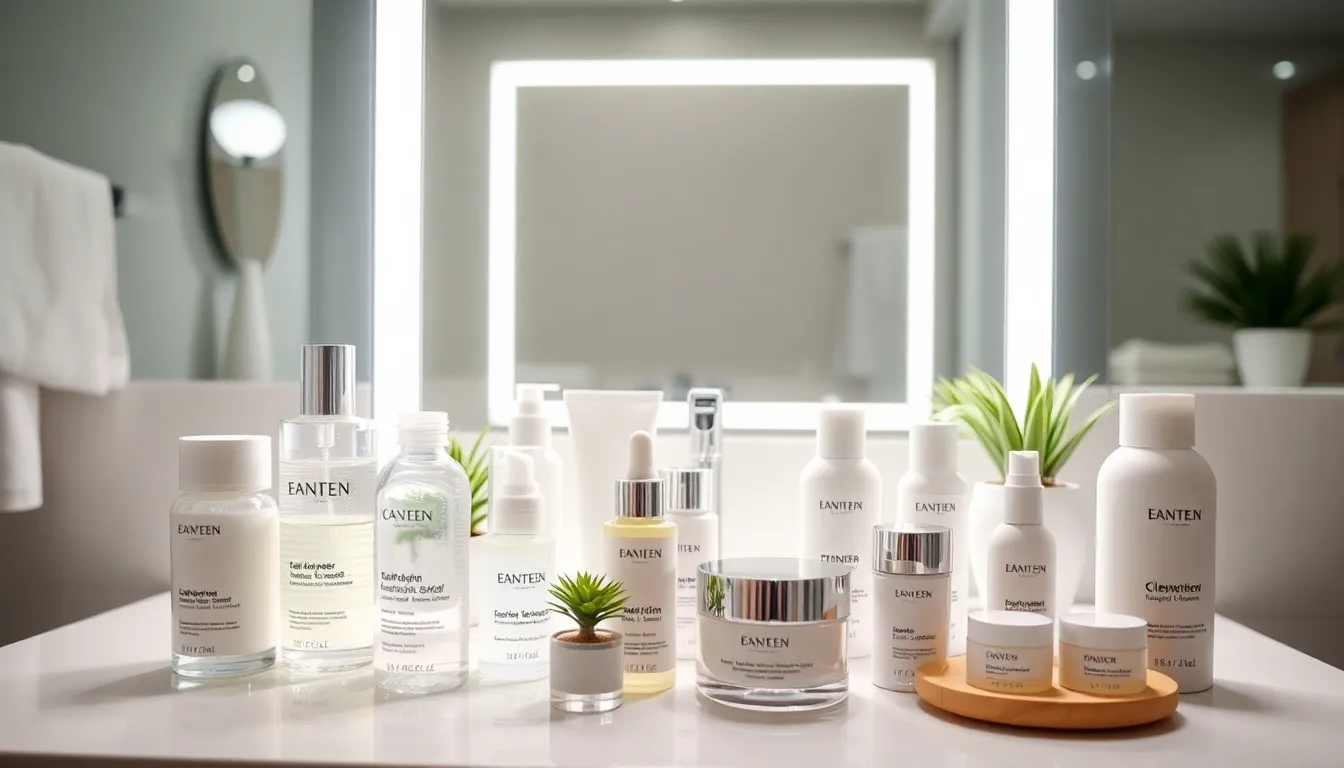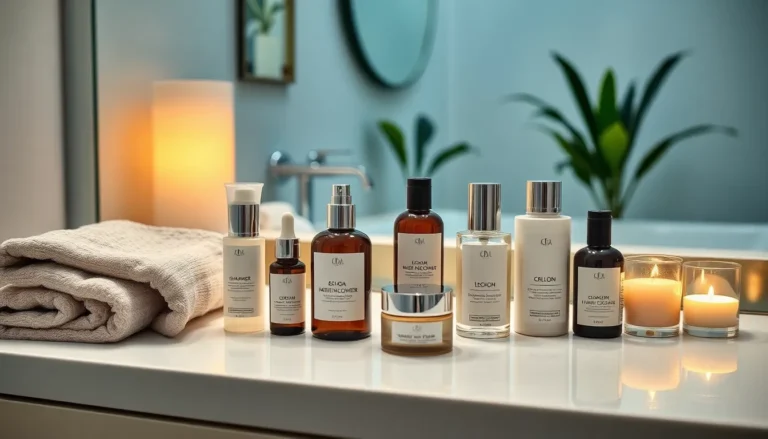Oily skin can feel like a curse, but it’s actually nature’s way of keeping you youthful. Imagine shining like a disco ball at a party, fun for a dance, not so much for your face. Fear not, because we’re diving deep into skincare routines that embrace your natural glow while keeping breakouts at bay. In this guide, you’ll discover how to manage oily skin effectively with a mix of humor, practical tips, and scientifically backed advice. Get ready to turn that shine into a glow.
Table of Contents
ToggleUnderstanding Oily Skin

Oily skin can be a tricky beast to tame. It’s essential to understand what’s going on underneath the surface.
Causes Of Oily Skin
Genetics and hormonal fluctuations are two prime culprits behind oily skin. When androgens increase, they stimulate the sebaceous glands to produce more sebum. That’s just a fancy word for oil. Environmental factors, like humidity, can also kick your oil production into overdrive. And let’s not forget diet: high sugar and processed foods can artifically ramp up sebum production.
Signs And Symptoms Of Oily Skin
If you often feel like you’re auditioning for a role in a ‘before’ skincare ad, you might be dealing with oily skin. Common signs include a shiny complexion, especially on the forehead, nose, and chin, sometimes known as the T-zone, enlarged pores, and frequent breakouts. Blackheads? Yep, they love oily skin too.
Essential Skincare Ingredients For Oily Skin
Finding the right ingredients is crucial for an effective skincare routine.
Best Cleansers For Oily Skin
Cleansers that contain salicylic acid or glycolic acid can help dissolve excess oil and prevent breakouts. Look for gel-based cleansers: they’re less likely to clog pores and will leave you feeling fresh.
Toners And Exfoliators For Oily Skin
A good toner containing witch hazel or tea tree oil works wonders. These ingredients help tighten pores and reduce oily skin. Exfoliation should be part of your routine too, but do it gently. Chemical exfoliants are preferable to physical scrubs, say goodbye to those harsh beads.
Moisturizers Suitable For Oily Skin
Even oily skin needs moisturizer. Go for oil-free, lightweight formulations that hydrate without adding extra shine. Gel-based moisturizers are fantastic options that won’t overload your skin’s oil levels while keeping it hydrated.
Sunscreen Options For Oily Skin
Oh, the dreaded sunscreen debate. Many oily skin warriors shy away from SPF, fearing a slippery disaster. Fear not: the market is full of oil-free, non-comedogenic sunscreens specifically designed for oily skin. Look for products labeled as ‘matte finish’ or ‘gel,’ which absorb excess oil and help you maintain a fresh look throughout the day.
Creating A Daily Skincare Routine
A consistent skincare routine will be your oily skin’s best friend.
Morning Routine For Oily Skin
Start your day with a gentle cleanser, followed by a toner. After that, layer with your lightweight moisturizer and, of course, don’t forget sunscreen. This trio will prepare your skin for the day ahead, helping to regulate oil without stripping away essential moisture.
Evening Routine For Oily Skin
At the end of the day, use your cleanser (again.) to wash away dirt and oil. Follow up with your toner and a treatment product with active ingredients, like retinol or niacinamide. Finish with your gel-based moisturizer to keep your skin hydrated overnight.
Weekly Treatments And Masks
Plus to your daily routine, consider incorporating weekly treatments. Clay masks are fantastic for oily skin, they help to absorb excess oil and unclog pores. Aim to use a mask once or twice a week, depending on your skin’s needs. You might also want to look into professional treatments, like chemical peels, that can help manage oil production.
Lifestyle Tips To Manage Oily Skin
Beyond products, lifestyle choices play a huge role in how oily skin behaves. Stay hydrated, water does wonders for the skin. Eating a balanced diet rich in fruits and vegetables can also make a difference. Avoid touching your face and change pillowcases regularly: these small changes can help prevent breakouts.
Also, managing stress through exercise or mindfulness can reduce the hormonal spikes that promote oil production.









